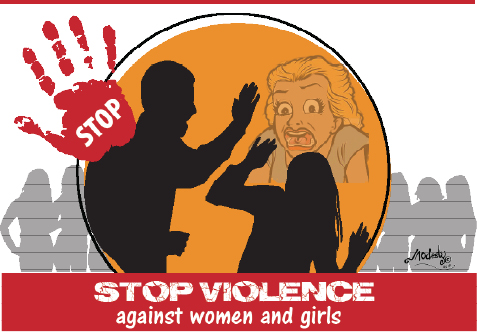Understanding what the 16 Days of Activism stand for
The annual 16 Days of Activism Against Gender-Based Violence is an international campaign to challenge Violence Against Women and Girls (VAWG). The three-week campaign, which runs every year from 25th November to 10th December, was initiated in 1991 by the first Women’s Global Leadership Institute as a human rights day to call for the elimination […]

The annual 16 Days of Activism Against Gender-Based Violence is an international campaign to challenge Violence Against Women and Girls (VAWG). The three-week campaign, which runs every year from 25th November to 10th December, was initiated in 1991 by the first Women’s Global Leadership Institute as a human rights day to call for the elimination of violence against women across the word.
Violence against women and girls is one of the most prevalent human rights violations in the world. It knows no social, economic or national boundaries. Worldwide, an estimated one in three women will experience physical or sexual abuse in their lifetime.
The World Health Organisation (WHO) stated that the issue of gender-based violence has reached every corner of the world, adding that the number of women and girls affected by the problem is staggering.
According to WHO data from 2013, one in every three women has been beaten, coerced into sex or abused in some other way, most often by someone they knew. One in five women is sexually abused as a child, according to a 2014 report.
Statistics reveal that Gender-Based Violence (GBV) or Violence Against Women and Girls (VAWG), is a global pandemic that affects 1 in 3 women in their lifetime while 35% of women worldwide have experienced either physical and/or sexual intimate partner violence or non-partner sexual violence.
“Globally, 7% of women have been sexually assaulted by someone other than a partner. Globally, as many as 38% of murders of women are committed by an intimate partner, and 200 million women have experienced female genital mutilation/cutting.”
The UN Women data on the prevalence of different forms of violence against women in Nigeria also stated that, lifetime physical and/or sexual intimate partner violence against women is 16 percent, lifetime non-partner sexual violence, 2 percent, child marriage 44 percent while female genital mutilation/cutting is 18 percent.
The campaign against the menace of GBV has been ongoing across the world with international partners, faith-based organisations and global advocacy groups that are working to break the silence, stop the stigma and end sexual and gender based violence.
The International Federation of Women Lawyers (FIDA) which staged a walk as part of the campaign in the Federal Capital Territory, declared its stand against rape, saying the menace was wreaking havoc in the society and needed to be stopped before more lives are ruined.
FIDA, FCT chairman, Rekia Adejo-Andrew, in marking the 16 days of activism, said, rape cases on women and girls are alarming in the FCT, with many others being recorded within the environs.
“We get these cases daily but we don’t prosecute and so we depend on other government agencies to do the prosecution like the police, Ministry of Justice, others.”
She said, the launch of the Sex Offender Register is a timely and innovative idea, adding that the Violence Against Persons (VAPP) Act provided for it and brought it to the fore.
“Before anybody’s name can enter that register it means you committed rape, and have been convicted. Your name will then enter the register and we can profile you and call you a rapist. It is all about naming and shaming.”
